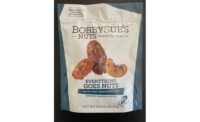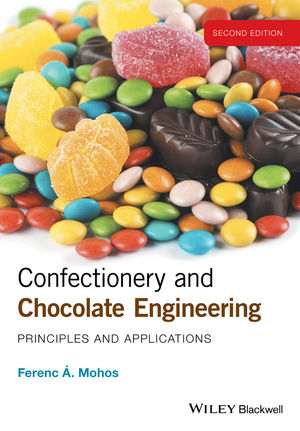Why Addition Matters More Than Subtraction
Mary Ellen Kuhn
With apologies to mathematicians everywhere, I submit that in the candy category right now, addition matters far more than subtraction. But I’m getting ahead of myself. Let me explain.
Lately I’ve been seeing a growing number of
confectionery products positioned to deliver added value courtesy of
functional and/or better-for-you formulations. It’s a strategy that
is just right for the current marketplace in which concerns about the
sugar, fat and calories in candy — and their alleged direct
correlation to our population’s expanding girth — have cast a
rather large shadow over the industry. And make no mistake about it, such
concerns are not going away. In fact, just-released statistics from the NPD
Group, a Port Washington, N.Y.-based research firm, show that 44 percent of
American homemakers are extremely or very concerned about serving foods
that contain sugar. That’s the highest level of concern about sugar
since 1994.
Given this ongoing angst about such “nutritional
no no’s,” it’s especially heartening to see so many
confectionery products focused on positive messages. Rather than
apologizing for the fact that, yes, confections do typically contain sugar
and fat, they’re shifting the tenor of the discussion — moving
it away from “bad” or “not healthy” to
“value-added” and “does a body good,” to borrow
from the longtime advertising campaign for milk. Thus it’s not about
subtracting the “bad” as much as it’s about adding more
of the “good stuff.”
I’m talking about the way in which
Hershey’s Whole Bean Chocolate touts its fiber and antioxidant
content, for example. Or how a whole host of premium chocolate offerings
are shouting out added value in the form of higher cacao content. Kimmie
Candy Company is introducing a full nutraceutical product line under the
banner LiFuel. It’s a version of Kimmie’s Sunbursts
candy-coated, chocolate-covered sunflower kernels enhanced with vitamins
and functional ingredients like ginseng and caffeine. A confectionery/snack
item positioned as “fuel” for life — wow! That’s
smart.
Of course, I’ll be the first to point to the
need for some caution in this arena. It’s been demonstrated that
over-consuming herbal/botanical ingredients can be health-threatening. So
product developers need to pay attention to current science.
Just as importantly, we must keep in mind that the
best value-added products are those that have a real reason for being
because they satisfy a need or solve a problem for consumers. Throwing a
few vitamins or herbal ingredients into an existing formulation and calling
it “new and value-added” won’t work. But introducing
thoughtfully conceived products that deliver bona fide benefits and
celebrating them with positive messages to consumers adds up to some pretty
great potential for success.






